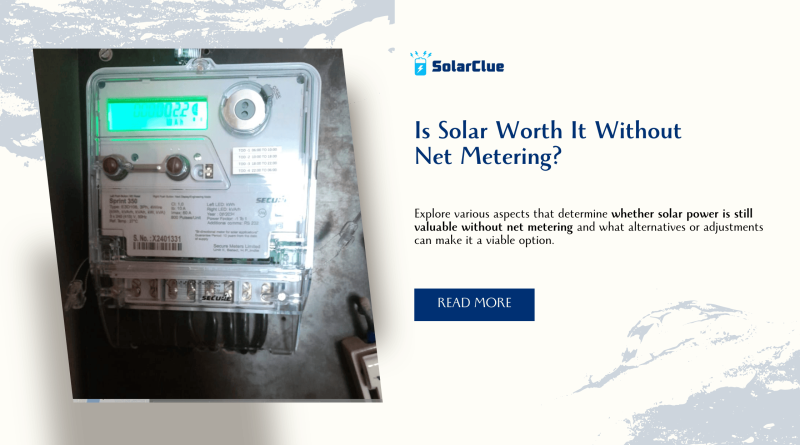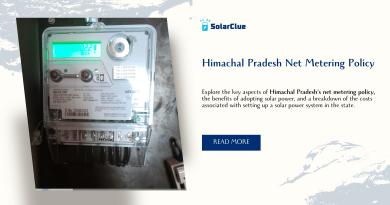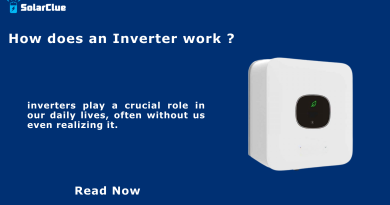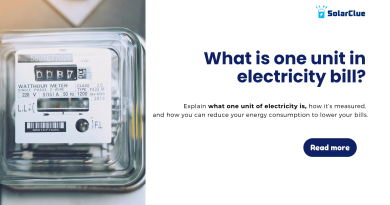Is Solar Worth It Without Net Metering?
The adoption of solar energy in India has been accelerating over the past decade, driven by the falling costs of solar panels and government incentives. However, one of the most crucial aspects that have made solar energy financially viable for residential and commercial users is net metering.
But what if there is no net metering? Is solar energy still a worthwhile investment in India? In this blog, we’ll explore various aspects that determine whether solar power is still valuable without net metering and what alternatives or adjustments can make it a viable option.
Table of Contents
What is Net Metering?
Net metering is a billing mechanism that allows solar energy system owners to feed excess electricity back into the grid in exchange for credits or compensation. When your solar panels generate more electricity than you use, the surplus power goes to the grid, and your electricity bill is adjusted accordingly. Without this system, any surplus energy generated is essentially wasted unless alternative methods are used.
Solar Power Without Net Metering: Key Considerations
1. Self-Consumption of Solar Energy
In the absence of net metering, the most critical factor determining the viability of solar energy is the ability to use the energy produced by your system during daylight hours. For residential and commercial users, solar power becomes more valuable when self-consumption is high.
Key Factors to Evaluate:
- Peak Energy Usage: Do your peak energy demands align with solar production (daylight hours)?
- Energy Storage: Can you store excess solar energy for use during non-daylight hours?
2. Energy Storage Solutions (Batteries)
Without net metering, one of the most effective ways to optimize solar energy is through battery storage. While battery technology has improved, it can still be relatively expensive in India. The key challenge here is determining whether the additional cost of batteries will be offset by long-term energy savings.
Pros:
- Energy independence
- No reliance on grid power during outages
Cons:
- High initial cost
- Limited lifespan of batteries (approximately 7-10 years)
3. Time of Use (TOU) Tariffs
Some regions in India are experimenting with Time of Use (TOU) tariffs, where electricity prices vary based on the time of day. Installing a solar system without net metering could still make sense if you can reduce your dependence on expensive, peak-hour grid electricity.
Key Consideration:
- Shifting your electricity consumption to daytime hours when your solar system is most productive.
4. Government Incentives and Subsidies
The Indian government continues to provide various incentives for solar installations, especially for residential and commercial users. While the absence of net metering might reduce the immediate return on investment (ROI), other incentives, such as capital subsidies and tax benefits, can still make solar installations attractive.
Key Incentives to Explore:
- Subsidies: Up to 40% for residential solar rooftop systems up to 3 kW.
- Accelerated Depreciation: Beneficial for businesses to claim depreciation at a higher rate.
- GST Concessions: Reduced rates on solar components.
5. Reduction in Energy Bills
Even without net metering, you can significantly reduce your electricity bills by consuming the solar power you generate. By lowering reliance on grid power, solar energy can still provide long-term savings.
Potential Savings:
- Lower monthly electricity bills
- Protection against rising electricity rates
6. System Sizing
Without net metering, it is crucial to size your solar system more accurately to avoid overproduction, which would result in wasted energy. A smaller, well-sized system that caters to your daily energy needs is more efficient than a large system producing excess energy.
Considerations:
- A system that meets, but does not exceed, your average energy consumption during daylight hours is optimal.
Alternatives to Net Metering in India
1. Gross Metering
Some states in India have adopted gross metering, where the electricity generated by your solar system is sold directly to the utility company at a predetermined tariff. You are billed separately for your consumption from the grid. While the rates offered under gross metering are typically lower than the retail electricity rates, this can still be a viable option, especially if your energy consumption is low.
2. Solar Energy for Off-Grid Solutions
For rural areas or locations with unreliable grid power, off-grid solar systems with battery backup can be a game-changer. These systems provide energy independence and can drastically reduce reliance on expensive diesel generators.
States in India Without Net Metering: An Evolving Landscape
As of 2024, some Indian states are phasing out net metering for larger rooftop solar systems, particularly for commercial and industrial users. States like Maharashtra and Gujarat have revised their policies, offering gross metering instead. However, net metering is still available in many states for smaller, residential systems.
Before installing a solar system, it’s essential to review your state’s policies and regulations regarding net metering or gross metering.
Is Solar Still Worth It Without Net Metering?
The Verdict:
Solar energy without net metering can still be worth it in India, but it requires more careful planning and consideration. Here are the conditions under which it remains viable:
1. High Self-Consumption: If you can use most of the energy generated during the day, especially for businesses or homes where daytime electricity use is significant.
2. Battery Backup: Investing in batteries allows you to store excess energy and reduce your reliance on the grid during the night.
3. Government Incentives: Subsidies and tax benefits can significantly reduce the initial cost of installation.
4. Long-Term Savings: Over time, solar power can still help you save on your electricity bills, especially as grid electricity prices rise.
Conclusion
Solar power without net metering in India requires a more strategic approach to ensure a good return on investment. While net metering boosts financial savings, the absence of it doesn’t render solar energy ineffective. Focusing on factors like high self-consumption, storage solutions, and government incentives can still make solar energy a wise and sustainable choice.
Ready to Save on Electricity Bills with Solar Power?
With Net Metering, you can drastically reduce your electricity costs by generating your own solar power and sending any excess back to the grid. It’s time to harness the sun’s energy and make a positive impact on both your wallet and the environment!
At SolarClue, we make the transition to solar simple, efficient, and affordable. Whether you’re a homeowner, business, or institution, our team of solar experts will guide you through the process—from installation to maintenance—so you can start saving from day one.
🌞 Take the first step towards energy independence today!
🔋 Get your solar consultation now!
Contact SolarClue or call us at +91-888-4444-830 to explore the best solar solutions for your home or business.
Go Solar. Save More. Power Your Future with SolarClue!
FAQs
1. What happens to excess energy generated by solar panels without net metering?
Without net metering, any excess energy is either wasted or stored in batteries if available.
2. How much does a solar battery cost in India?
The cost of solar batteries in India can range from ₹30,000 to ₹1,00,000 depending on the size and type of battery.
3. Are there alternatives to net metering in India?
Yes, alternatives like gross metering and off-grid solar systems are available in several states.
4. How long does a typical solar battery last?
Solar batteries generally last between 7 to 10 years, depending on usage and maintenance.
5. Can I install a solar system if my state does not offer net metering?
Yes, you can still install a solar system, but you’ll need to consider alternatives like batteries for storage or opt for gross metering.





I am pintu shau from West Bengal, if there have subsidy offer I interested to install ongrid system contract no 8910286676
Thank you for your interest! Subsidy offers are available for on-grid systems, and we’d be happy to assist you. Please contact us at +91-888-4444-830, or our team will reach out to you shortly.